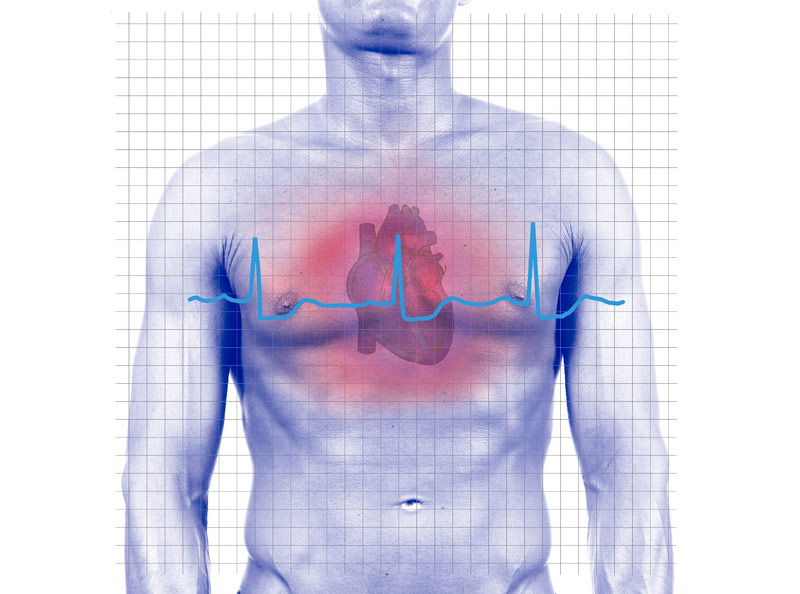Insecure People at Higher Risk of Heart Attacks

Get the world’s most fascinating discoveries delivered straight to your inbox.
You are now subscribed
Your newsletter sign-up was successful
Want to add more newsletters?

Delivered Daily
Daily Newsletter
Sign up for the latest discoveries, groundbreaking research and fascinating breakthroughs that impact you and the wider world direct to your inbox.

Once a week
Life's Little Mysteries
Feed your curiosity with an exclusive mystery every week, solved with science and delivered direct to your inbox before it's seen anywhere else.

Once a week
How It Works
Sign up to our free science & technology newsletter for your weekly fix of fascinating articles, quick quizzes, amazing images, and more

Delivered daily
Space.com Newsletter
Breaking space news, the latest updates on rocket launches, skywatching events and more!

Once a month
Watch This Space
Sign up to our monthly entertainment newsletter to keep up with all our coverage of the latest sci-fi and space movies, tv shows, games and books.

Once a week
Night Sky This Week
Discover this week's must-see night sky events, moon phases, and stunning astrophotos. Sign up for our skywatching newsletter and explore the universe with us!
Join the club
Get full access to premium articles, exclusive features and a growing list of member rewards.
People who are untrusting, fear rejection, or are otherwise insecure about their relationships might be at a greater risk for health problems than their more secure counterparts.
A new study shows such relationship uncertainties, known as "insecure attachment," were linked to a higher risk for a number of health conditions, including stroke, heart attack and high blood pressure.
The researchers were initially surprised by the results since much of the work related to relationship attachment and health has focused on conditions involving pain, such as arthritis, and not cardiovascular conditions.
The study "suggests that attachment is associated with these fairly concrete and negative health outcomes," said study researcher Lachlan McWilliams, of Acadia University in Nova Scotia, Canada. Pain conditions are somewhat subjective experiences in that people can experience more or less pain, while something like a heart attack is a distinct, clear cut event, he said.
And since these insecurities are thought to develop at a young age, the work adds to "a growing body of research that suggest that negative experiences in childhood have a wide range of negative outcomes in terms of mental health and [physical] health later in life," McWilliams told LiveScience.
Feeling attached, or not
The study looked at three types of relationship attachment: secure, avoidant and anxious.
Get the world’s most fascinating discoveries delivered straight to your inbox.
People who are comfortable with others, willing to depend on them and don't mind getting close are said to have secure attachment. People who have doubts about others, don't like getting close and aren't very trusting are said to have avoidant attachment. Those who want to get close to others but have apprehensions about rejection are said to have anxious attachment.
Genetics and life experiences are thought to influence these different attachment styles, McWilliams said.
"If parents are fairly unresponsive, don't pay much attention to their kids, their child may develop avoidant attachment — learn to depend on themselves rather than others," he said. "Parents who are inconsistent, sometimes supportive and sometimes not as helpful, that tends to lead to the more anxious style of attachment."
McWilliams and his Acadia colleague S. Jeffrey Bailey analyzed surveys on attachment types from 5,645 adults ages 18 to 60. Participants also reported their lifetime histories of chronic health problems, including arthritis, severe headaches, chronic pain, stroke and heart attack. They also said whether they had been diagnosed with heart disease, high blood pressure, asthma, chronic lung disease, diabetes, high blood sugar, ulcers, epilepsy, seizures or cancer.
Finally, subjects were assessed for psychiatric disorders, such as depression.
After adjusting for demographic variables, the researchers found avoidant attachment was associated mainly with pain-related health conditions, including arthritis and headaches. Anxious attachment was associated with pain problems, but also with cardiovascular problems, including stroke and heart attack. Secure attachment was not linked to any health problems studied.
When the researchers accounted for psychiatric disorders that might explain the health problems, anxious attachment was the only attachment type to still show a link with health. It was associated with chronic pain, heart attack, high blood pressure and ulcers.
Why?
While the results don't say anything about why insecure attachment is linked to health problems, the researchers pose a few hypotheses.
"Attachment really influences how people cope with stress," McWilliams said. People with insecure attachment might be more prone to dealing with stress through drinking and smoking, which in turn may lead to health problems, he said.
Those with relationship insecurities might also have trouble interacting with their doctors.
"That could involve not going to a doctor when you need one, not paying attention to what the doctor tells you to do in terms of taking medication, or changing one's lifestyle," McWilliams said.
McWilliams says more work needs to be done to determine what's behind the link.
The results are published in the July issue of Health Psychology, a journal of the American Psychological Association.
- 7 Ways to Raise Your Risk of Stroke
- 5 Bad Habits You Should Still Quit
- 7 Thoughts That Are Bad For You

Rachael is a Live Science contributor, and was a former channel editor and senior writer for Live Science between 2010 and 2022. She has a master's degree in journalism from New York University's Science, Health and Environmental Reporting Program. She also holds a B.S. in molecular biology and an M.S. in biology from the University of California, San Diego. Her work has appeared in Scienceline, The Washington Post and Scientific American.
 Live Science Plus
Live Science Plus










